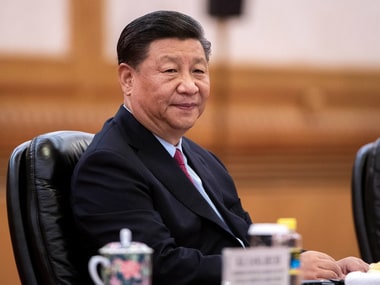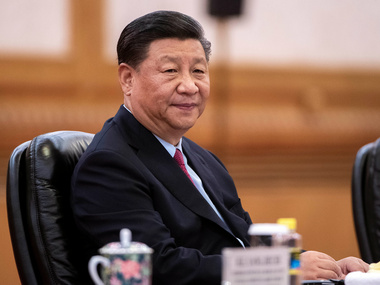The 70th anniversary of the People’s Republic of China that was celebrated on Tuesday in Beijing amid a pomp and ceremony parade, was undoubtedly a landmark event in modern human history. The Communist regime dragged millions and millions out of poverty, reclaimed respect for socialism after the demise of the Soviet Union, and set in motion the growth of the first Asian superpower. However, as the military tanks rolled by in Tienanmen Square and 150 fighters and bombers roared in from the Chang’an Avenue side, the world watched the event with an uneasy blend of admiration and anxiety. Much of the machismo embedded in the pageantry—a rocket capable of firing nuclear missiles to all American cities, for example—is understandable when one recalls the West’s centuries-long trajectory of bullyragging others, with arms ranging from Enfield riles to “Star War’ weapons. Nor is it an inexcusable bout of narcissism that the government donated 620,000 TV sets to the poor to enjoy the pageant sitting at home.[caption id=“attachment_7182141” align=“alignleft” width=“380”]  File image of Chinese president XI Jinping. Reuters[/caption] But what is deeply worrying is the rebirth, after Mao Zedong (died 1976), of a second personality cult, around President Xi Jinping. And like all personality cults, this too has its adjuncts; like a one-party state, the opacity of governance, disregard for the rule of law, and a simmering jingoism. Xi Jinping (born 1953) is known as the “paramount leader” as he is general secretary of the Communist Party of China (CPC), president of the People’s Republic of China and chairman of the Central Military Commission (CMC). He rose to the CPC top seat in 2012, and since then has centralised power with more ruthlessness than Mao. Power in the Chinese government rests not in the ministries but in a plethora of ‘central commissions’. Xi personally heads the central commissions on finance, foreign affairs, military affairs, national security, internet policing and, since last year, the one on reform, under a commission interestingly named as of “comprehensively deepening reforms”. Under Xi, the two-term limit of presidentship was removed in 2018, so he can continue as president after 2023 if he so wishes, and the party agrees. Nor is there much grit left in the party to ask Xi to leave. Having upended the collective leadership in the post-Mao era, Xi is now busy suppressing all forms of dissent. His effort is successful generally, but there are conspicuous lapses. Hong Kong is an example. The former Crown colony island off the coastal province of Guangdong was surrendered by the United Kingdom to China in 1997 on the condition that its British-induced democracy and rule of law couldn’t be tampered with, for 50 years at least. Simultaneously, Portugal agreed to return its colony, Macao, on similar terms. Deng Xiaoping, the then paramount leader, hailed it as a vindication of his principle of “one country, two systems”. Of late, a fusillade of provocation began coming onto the island from the mainland. The worst was a bill that purported to amend the extradition law, making it possible for the mainland government to drag into its territory those Hong Kongers it thought to be criminals, and then try them under its judicial system. Ordinary people in Hong Kong do not hold in high regard to the justice system of the mainland, as the Communist Party towers above everything there, including courts. In protest, the Hong Kong residents began attacking the Chinese government offices and institutions in unending waves, regardless of baton charges, teargas shells, water cannon flush, shots in the air and occasional attacks on protesters by elements from the notorious Chinese triads. Undeterred, the protesters, flashing their phone screens at the onset of dusk, staged a spectacular march, the Hong Kong Way, 50-kilometre long, that wound its way from the harbour all the way to Lion’s Peak. Still, Beijing seemed hesitant to cross the line. However, as the National Day celebration was on, the Chinese army in Hong Kong reportedly fired the first shot at the protesters, setting the stage for escalation. There were rallies in Sydney and London in sympathy with the Hong Kong protesters. The age-old persecution of the Uyghur Muslims in the western region of Xinjiang province is now bleeding into other parts, to affect other Muslim communities, notably Hui. In Xinjiang, the government has set up “re-education camps”, which are nothing but internment camps without trial, for Uyghurs and other Muslims. Their number now exceeds a million. Earlier this year, 22 UN ambassadors of Western countries and Japan wrote to the United Nations Human Rights Commission to prevent such illegal detentions. But China’s global influence is now overarching. Within days, 37 ambassadors of various nations, including Saudi Arabia and, most comically, Pakistan, wrote a counter-letter saying everything that China did in Xinjiang was in accordance with its law, and therefore, the UN should desist from intervening. And now, Huis, who are scattered across the country, are being selectively targeted, with their mosques getting the minarets and stars lopped off, signboards with Arabic letters destroyed, and the mosque seminaries (madrasa) locked down. Chinese communists always had problems with Islam, but the party under Xi is allergic to the Islamic exceptionalism. If China gets edgy about people in its territory other than the majority Han, its impatience is spilling forth to the neighbourhood, apparently in tandem with its strength and importance. The focal point of its pugnacity is the South China Sea, the home of 11 billion barrels of untapped oil and 190 trillion cubic feet of natural gas. China makes a sweeping claim of sovereignty on its waters. It has antagonised competing claimants like Brunei, Indonesia, Malaysia, the Philippines, Taiwan and Vietnam. As satellite imagery exposed China augmenting existing islands, or creating altogether new ones, Beijing objected to “intrusion” into its Exclusive Economic Zone (EEZ), particularly that of intelligence gathering by foreign aircraft. As the Philippines complained against China at the Permanent Court of Arbitration in The Hague, the court applied a key principle of the UN Convention of the Law of the Sea (UNCLOS) that claimant countries in disputed waters should have freedom of navigation through the EEZs, and are thus not required to notify the military objective, if any, of the flights. However, China has not accepted the ruling, even though it is a signatory to UNCLOS. On the other hand, it is leaving its military signature across the South China Sea. It is piling sand onto reefs, constructing ports, airstrips and military installations. It has militarized islands with fighter jets, cruise missiles and radar systems. Nevertheless, China’s material achievements as a nation are stunning. Shanghai in 2005 was impressive; it is breathtaking now. UN defines skyscrapers as buildings at least 200 meter high. China now has half the world’s skyscrapers. Between 2014 and 2018, China built skyscrapers over ten times than the US. The country has also revolutionised public transport, leaving the West far behind. Its cities have created 3,100 miles (not kilometre) of subways and trams, mostly under the asphalt. And the country is connected by 14,000 miles of high-speed railway network. Running at speeds between 250 kmph and 350 kmph, it should cover the same distance between, say, Mumbai and Delhi, in four-and-a-half hours. For those who visit Japan for the sheer thrill of Shinkazen, the high-speed trains of China may prove faster at times, and certainly cheaper, not to speak of the vast distances they cover. And with a per capita GDP at purchasing power parity of over $18,000 (2.8 times that of India), the country has plenty of people who can afford to use the infrastructure. Through its history, the Chinese Communist Party has steered the boat of the nation with exceptional fortitude and skill. In the Cold War, it maintained distance with the Soviet Union and avoided being isolated, unlike India, in the global markets of technology and knowledge. After the fall of the Soviet Union, its stooges all collapsed, and so did the European version of socialism. But nothing happened to the creed in China due to the sagacity of Deng Xiaoping, who devised “socialism with Chinese characteristics”. It is Deng’s reforms that are bearing fruit, adding glory to Xi Jinping in the process. Even Deng got jittery and over-reacted once, in 1989, when student demonstrators demanded more reforms and got impatient. There was a mini-revolt at the very same Tienanmen Square in 1989, which was ruthlessly crushed. In the later years, a section of party insiders laid the blame on Deng for calling out the tanks, causing the death of thousands. It is possible that Deng had just caved in under pressure from hardliner premier Li Peng. But he swam back to pre-eminence, gave reform a fulness of purpose, and proved his liberality of heart which was lacking in veterans like Mao. Still, Mao had won over the US. But Xi, who claims to be his successor, has alienated not only the US but almost all who are not seeking Chinese investment or military help. He has turned an ancient civilization into a surveillance state. He fought so bitterly with Google and Facebook that they bid farewell to not just the Chinese market but its sky. Their products don’t exist in China but the domestic alternatives are all government earphones. One cannot download the Chinese messenger WeChat unless some existing member recommends. That’s dicey; if the individual is a Chinese resident, he will remain responsible for the Chinese government’s opinion about you. In the hotel room, satellite TV can’t access any international channel without government clearance. The sale of digital copies of international newspapers and magazines are mostly institutional, their readers being under ‘watch’. In mobile shops, one may discreetly buy a Virtual Private Network to search the Web, but the shopkeeper says in a low voice to do it “carefully”. China today is an autocratic police state which would have saddened its founders and builders.
Xi Jinping personally heads the central commissions on finance, foreign affairs, military affairs, national security, internet policing and, since last year, the one on reform, under a commission interestingly named as of “comprehensively deepening reforms”.
Advertisement
End of Article


)

)
)
)
)
)
)
)
)



